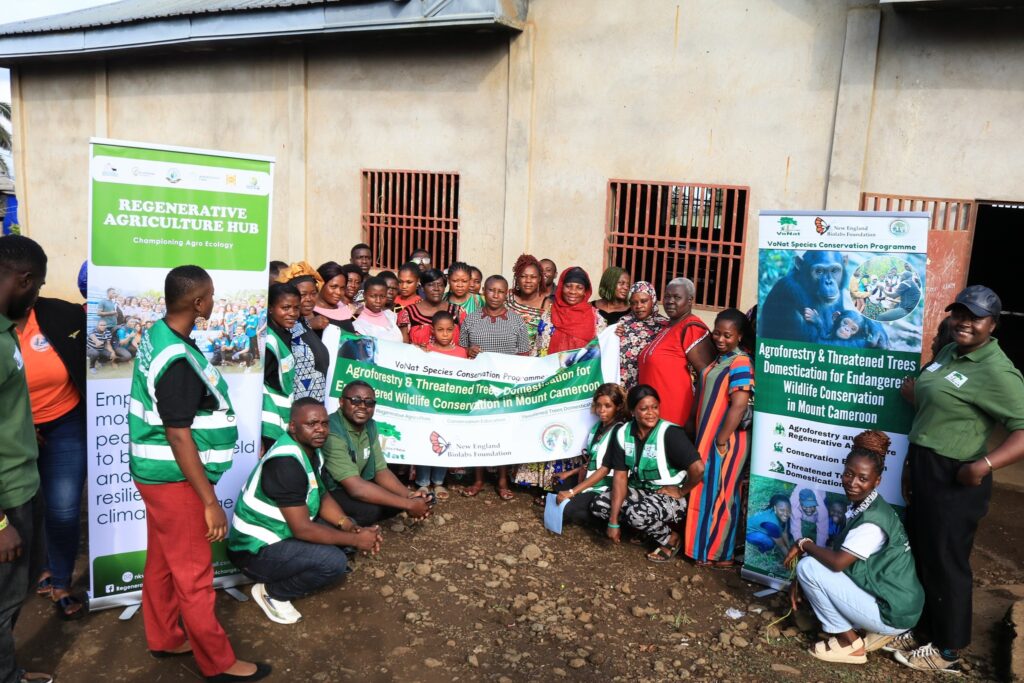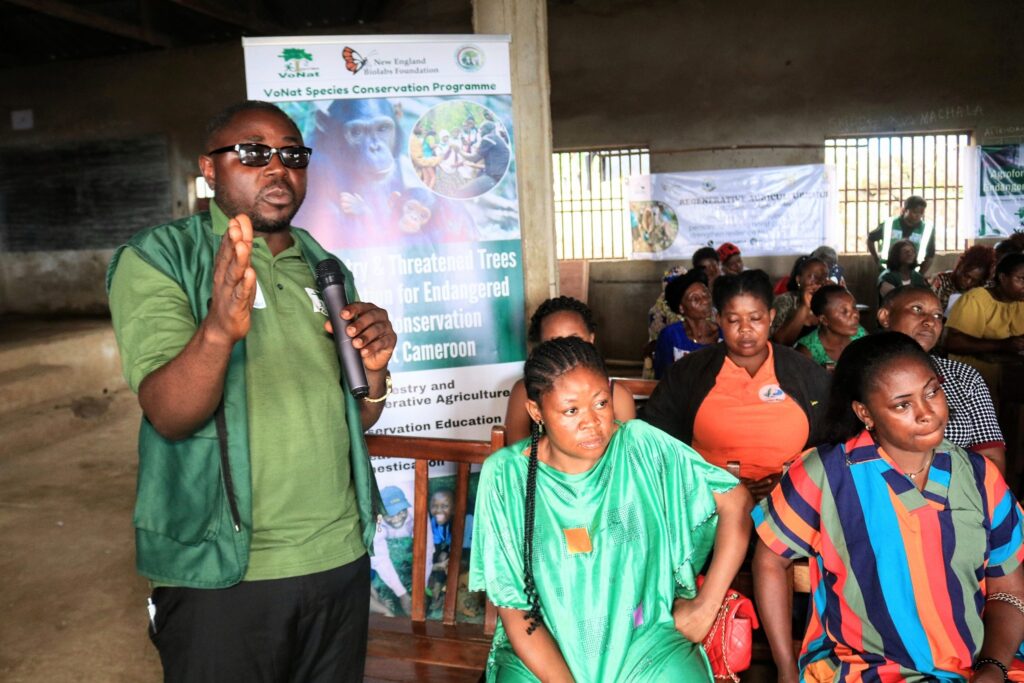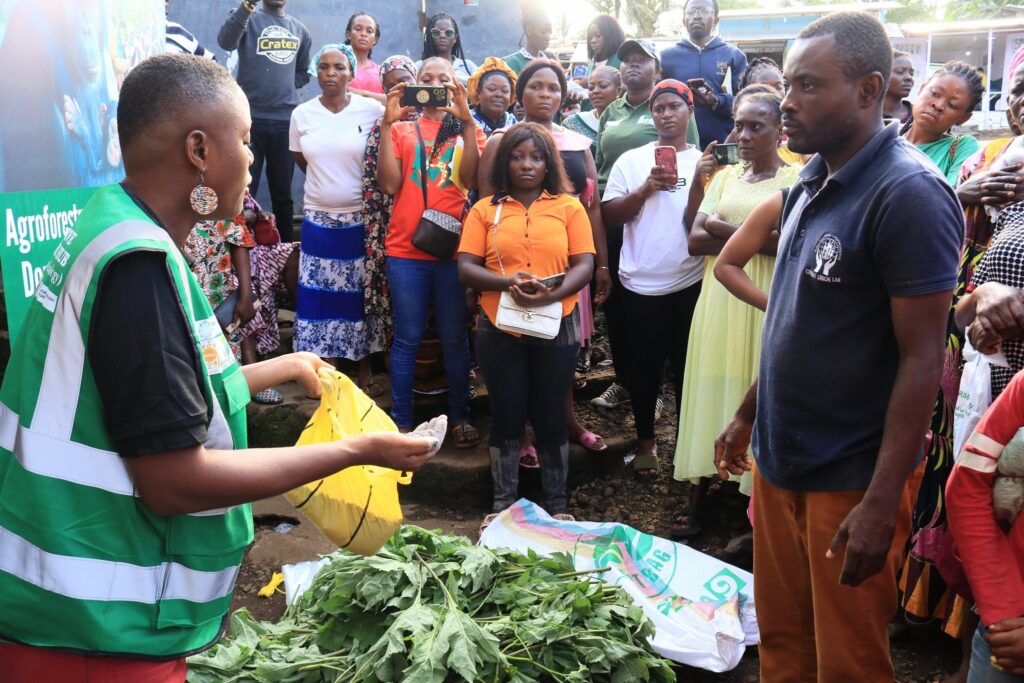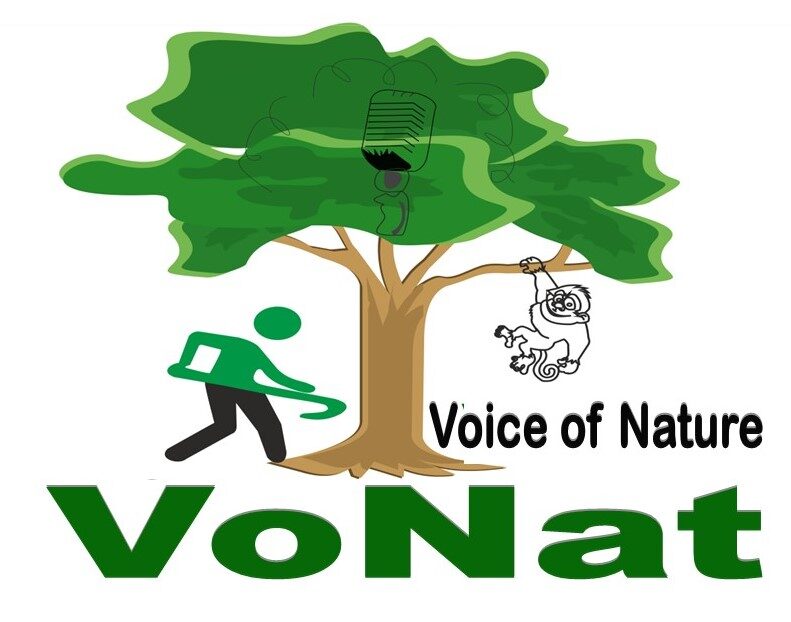Voice of Nature (VoNat), in partnership with Regenerative Agriculture Hub of Nkwa4Change Solutions (NS), has trained 52 farmers communities in the Mount Cameroon Area, including Bwitingi, Bwiteva and Bokova on regenerative agriculture and agroforestry practices. The training, which took place recently at the Bwitingi Council Hall in Buea-Cameroon, also had the Regional Chief for Conservation Promotion and Monitoring at the South West Regional Delegation of Environment, Protection of Nature and Sustainable Development (MINEPDED), the Bororo Indigenous community and staff of both VoNat and NS in attendance.

The 52 farmers, including men, women, and youth received both theoretical and experiential training on regenerative agriculture and agroforestry. They were each given a manual on organic fertilizer production to follow and continue producing and applying organic fertilizers in their farms. In the days ahead, the organic fertilizers produced during the workshop will be distributed to the trained farmers who receive continuous guidance and mentorship on the application of the fertilizer on their farms to boost yields.
Speaking during the workshop, the Executive Director of VoNat Ndimuh B. Shancho, emphasized the broader conservation goal of the project: “We hope that with this training, farmers will increase yields without expanding farmlands into the forest. By embracing regenerative practices and adopting agroforestry, we can help protect biodiversity in the Mount Cameroon National Park and secure better livelihoods for surrounding communities.”

The regenerative agriculture training also seeks to boost the income of these smallholder farmers in the phase of climate change and reduce the destructive shifting cultivation, deforestation and yearly encroachment into the Mount Cameroon National Park.
According to the Co-founder of Nkwa for Change Solutions, Motia Felicia, organic fertilizer help to improve soil health. “They are cheap and easy to produce as only local material like animal droppings, water, wood ash and sun flower are needed. They also help to protect the environment unlike the chemical fertilizers that are not only expensive but pollutes portable water sources amongst others,” she added.

The Regional Chief for Conservation Promotion and Monitoring at the South West Regional Delegation of Environment, Protection of Nature and Sustainable Development, Ndifor Gretel Nahsang, praised the initiative. Ndifor encouraged the Mount Cameroon communities to “participate in activities that help mitigate climate change impacts, conserve biodiversity and enhance food security”.
One of the participants, Quinta Saker, said she is happy to have acquired skills in organic liquid fertilizer production, and promised to start applying the skills gain in her garden. Another trainee, Mangoh Regina said the knowledge acquired will improve her farming skills.
The 1-day training was the first phase of the VoNat and NS joint regenerative agriculture and agroforestry programme that seeks to train and engage 100 smallholder farmers in five adjacent communities to the Mount Cameroon National Park on regenerative agriculture. New England Biolabs Foundation and MBOSCUDA are providing funds for these training programmes.
Meanwhile, plans are underway at VoNat to distribute thousands of agroforestry and threatened tree species, including acacia, soursop, prunus Africana and mahogany to the farmers and other community members, as part of it Mount Cameroon Endangered Species Conservation initiative funded by New England Biolabs Foundation.
